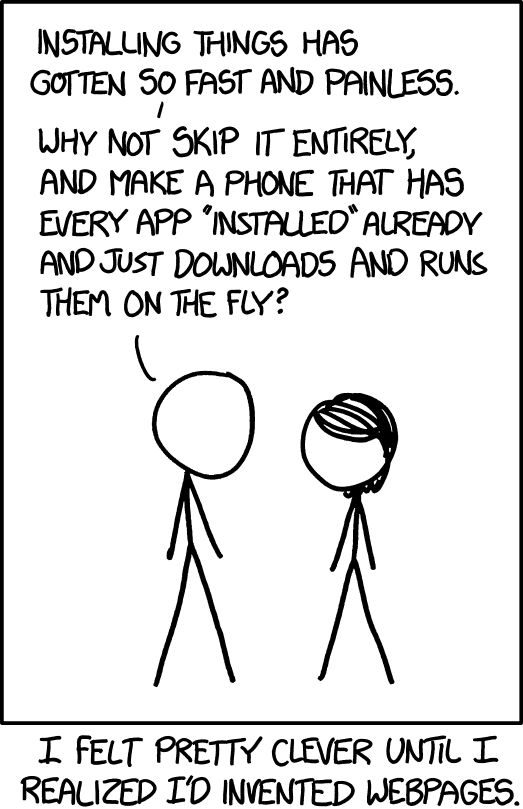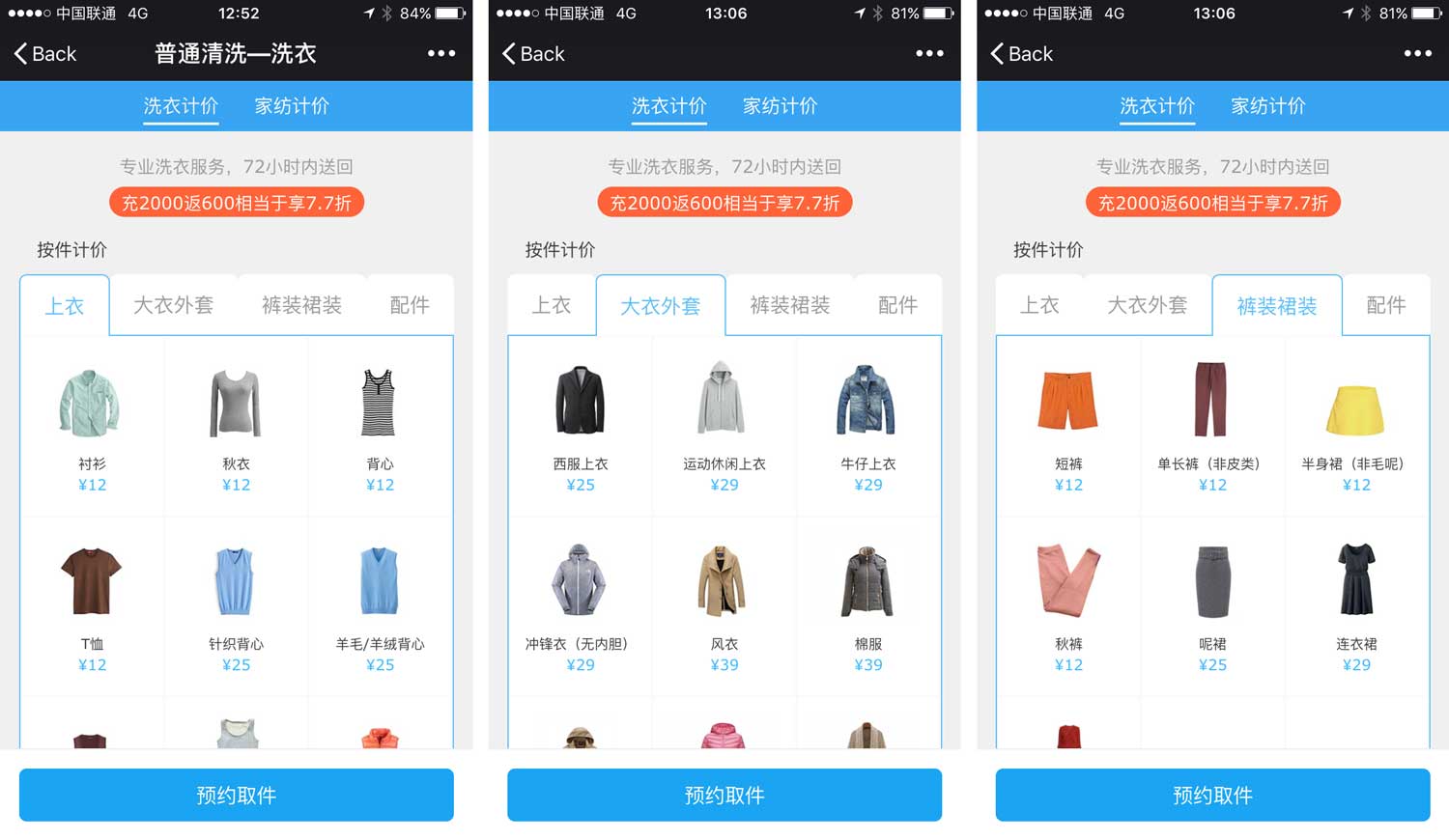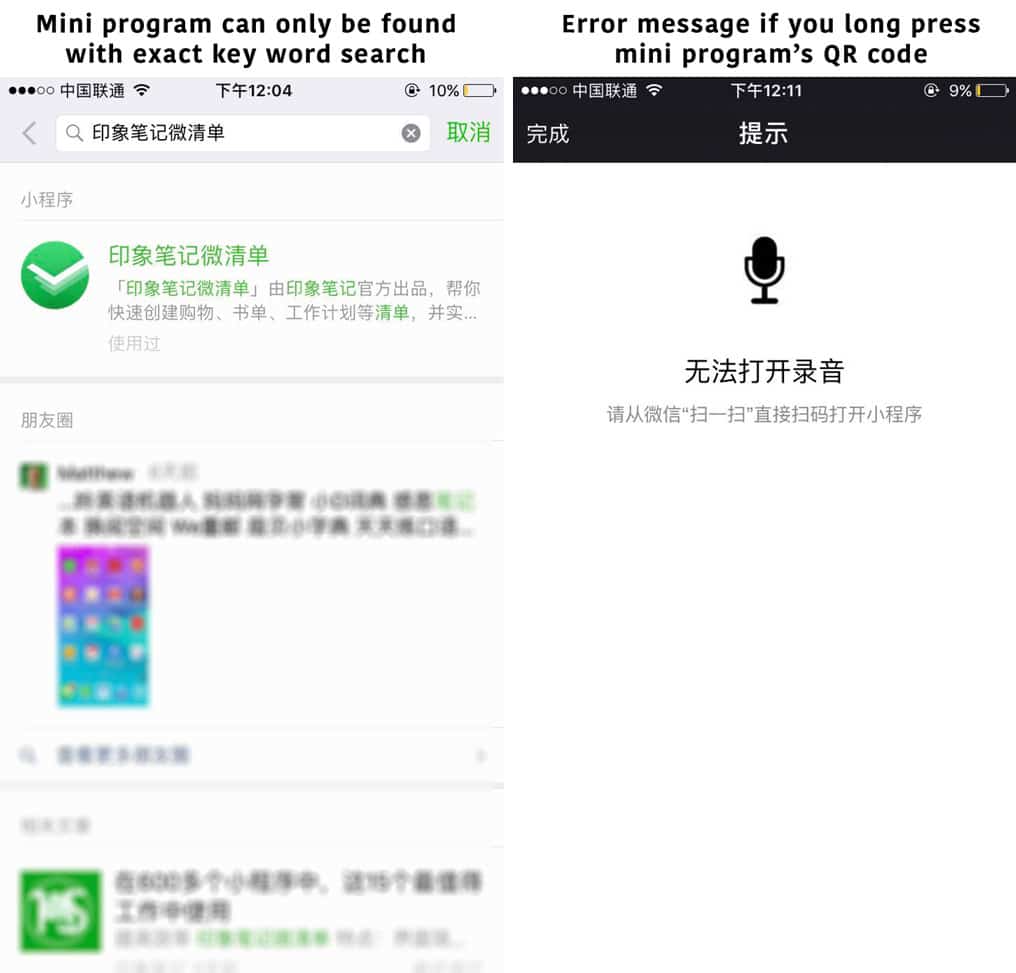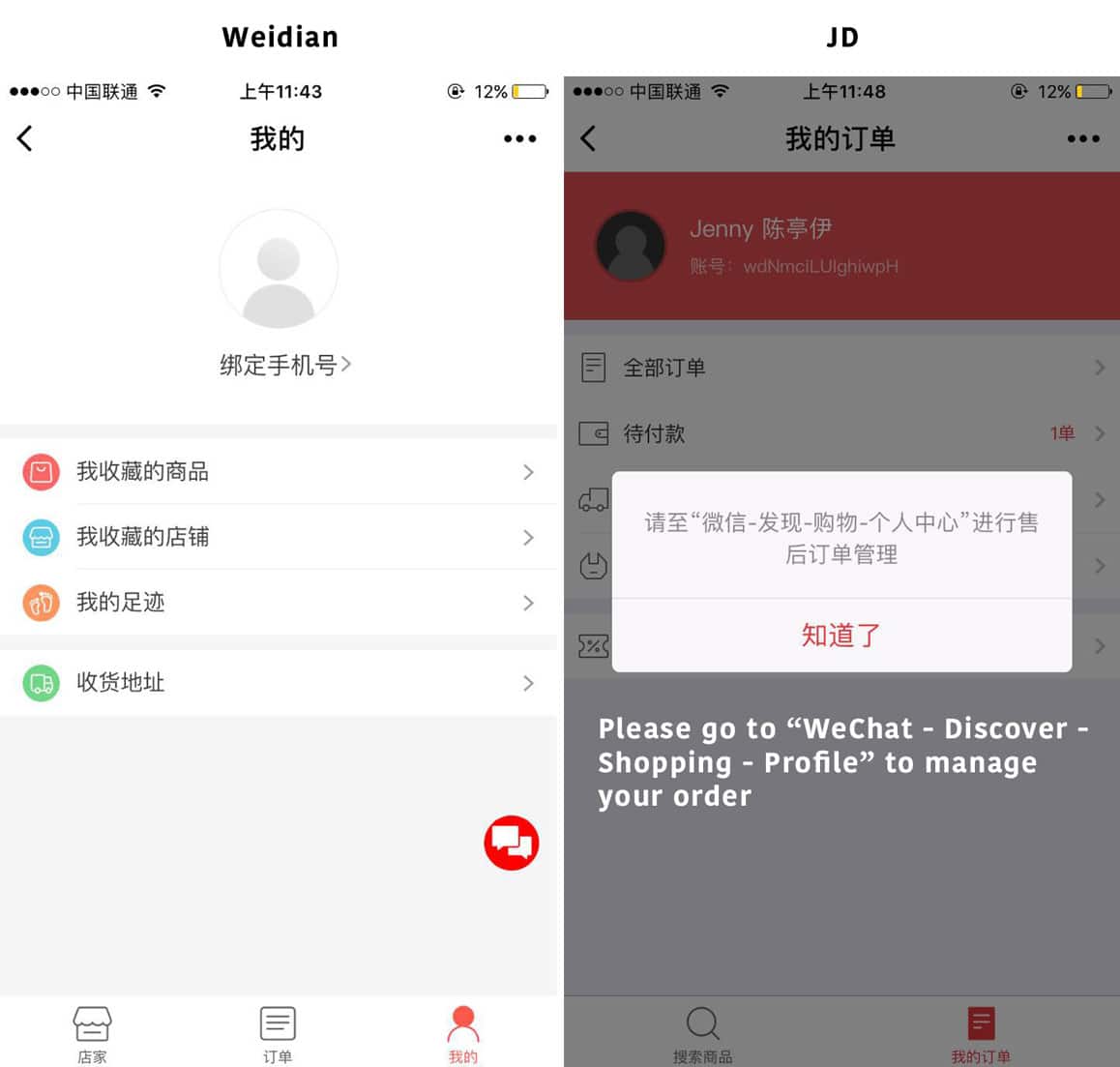There was a lot of buzz this week over the launch of WeChat mini program. Everyone from TechCrunch to Forbes keep praising the new Tencent feature. Mashable even describes mini-programs as “beating Google to the punch”.
Let’s see why these assumptions are all deeply, deeply flawed…
What’s the hype?
So what’s the promise of WeChat mini-programs?
- Enabling you to access applications without having to download them
- Creating an APP eco-system around WeChat which would replace native APP’s
Let’s check these assumptions
APP’s you don’t need to install
APP’s you don’t need to install exist for a while. Actually they exist since the 80’s. Surprised? Well, you might be familiar with the name of these magic APP’s. They’re called Webpages.
The web comic xkcd made fun of this concept as early as 2014:

And that’s exactly what’s happening to WeChat mini programs. They seem pretty clever, until you realize WeChat just invented webpages.
At the core this is what mini programs are: they are webpages, created in a language very similar to traditional web-APPs, and WeChat simply gives you a way to cache their code on your phone.
“but Thomas, it’s not about the programming language, it’s about being able to do everything from within WeChat, making it a beautiful integrated ecosystem”
I hear you. But what if I told you there is already an eco-system of APP’s integrated inside WeChat? You know about it already. These are WeChat service accounts.
An APP-ecosystem inside WeChat
WeChat min-programs are offering the promise of an eco-system of APP’s which will keep you from ever leaving WeChat.
The problem is: that’s already the reality people are living in, in China. Chinese users spend 35% of their daily APP-time on WeChat. And they do much more than chatting: WeChat already enables you to order food, dry cleaning or cabs. This is mostly happening through WeChat Service Accounts linking to HTML5 web-APPs.
The WeChat service account of eDaiXi (e袋洗) enables you to have someone pick up your laundry for dry cleaning, and it existed way before mini-programs were even announced!

WeChat users are already struggling to clearly wrap their mind around the difference between Subscription and Service accounts. Is there a need for another category of accounts? Most likely not.
Moreover, WeChat mini-programs come with some serious drawbacks.
The problem with WeChat mini-programs
The situation wouldn’t be so dire if WeChat mini-programs were just an improved version of WeChat Service Accounts. But they come with some serious liabilities.
Broadcast messages: unlike service accounts, mini-programs do not enable account managers to send broadcast messages to their followers. In this context, why would marketers and store managers choose to push their mini-program instead of their service account?
Development: WeChat mini-programs are requiring developers to write in a Tencent proprietary language: HTML has to be replaced with wxml, CSS with wxss. Developers will have to learn yet another framework specially focused on mini-APPs. Some large companies might make a short-term investment to train some developers to use these new frameworks. But setting a new development standard might well keep WeChat mini-programs from going mainstream.
Discoverability: there is no official APP store to find WeChat mini-programs, leaving all the responsibility of discoverability to the publisher. Users have to enter the exact name of the mini program in order to find it. Moreover, you can’t easily set up a QR code linking to the mini-program that can be long-pressed, you would have to scan the QR code from your camera.

Accessibility: only Android users are able to add the APP on their phone home screen. This feature isn’t available for iOS users. All iOS users (which are traditionally taste-makers in China. iOS users led the widespread adoption of WeChat in China) will have to use the WeChat search function to find their old mini-programs. A process which isn’t any better than looking for WeChat service accounts.
User data: mini program’s default login method is WeChat login. Many existing user databases are connected with user’s mobile phone number. This means if your customer’s account information is not connected to his/her WeChat, the mini app’s user profile feature is basically unusable.
For example, Weidian’s mini app 微店买买 (left) won’t allow users to connect to phone number. JD’s mini app 京东购物 (right) only provides limited order management feature: users needs to go to WeChat/Discover/Shopping/Profile in order to manage the order. Which defeats the purpose of having another mini app.

Walled gardens: mini-programs have been compared to Google Instant APP’s. But they actually have completely opposite philosophies. Google Instant APP’s are about allowing more inter-connectivity by enabling to easily link APP’s with each other (through deep-linking) even if you don’t have the said APP installed. WeChat is about reducing this inter-operability by constraining everyone to its own ecosystem.
Storage: unlike native APP’s, WeChat mini-programs have very limited amount of storage they can use (around 10 mb). This limits the complexity of these mini-APPs, and their usefulness (as they can’t really store significant amounts of usage data)
Who should develop a WeChat mini program?
Although we are painting a bleak picture of WeChat mini programs, Tencent’s Official Account highlights a few case where they might actually be useful.
In an article describing use cases of the min-programs, Tencent hypes them as a convenient way to check bus schedules:

As an express way to register when visiting an hospital (a traditionally soul-crushing process in Chinese hospitals called Guahao/挂号)

Or as a solution to pay for your gas without having to get off your car:

Tencent’s Official Account gives more examples: airports, schools and parking lots. In another words, a mini-program might be a good option in the following context:
- A brick-and-mortar location
- Users only need the service on that specific moment, and won’t need to access it again later or receive push notifications
If your business meets the two requirements above, WeChat mini programs could be a good choice.
Conclusion
WeChat mini-APPs are a bold attempt to invent something that already existed. They are “fancy” version of web-APPs. But their many drawbacks compared to WeChat service accounts will make their mainstream adoption a challenge.
